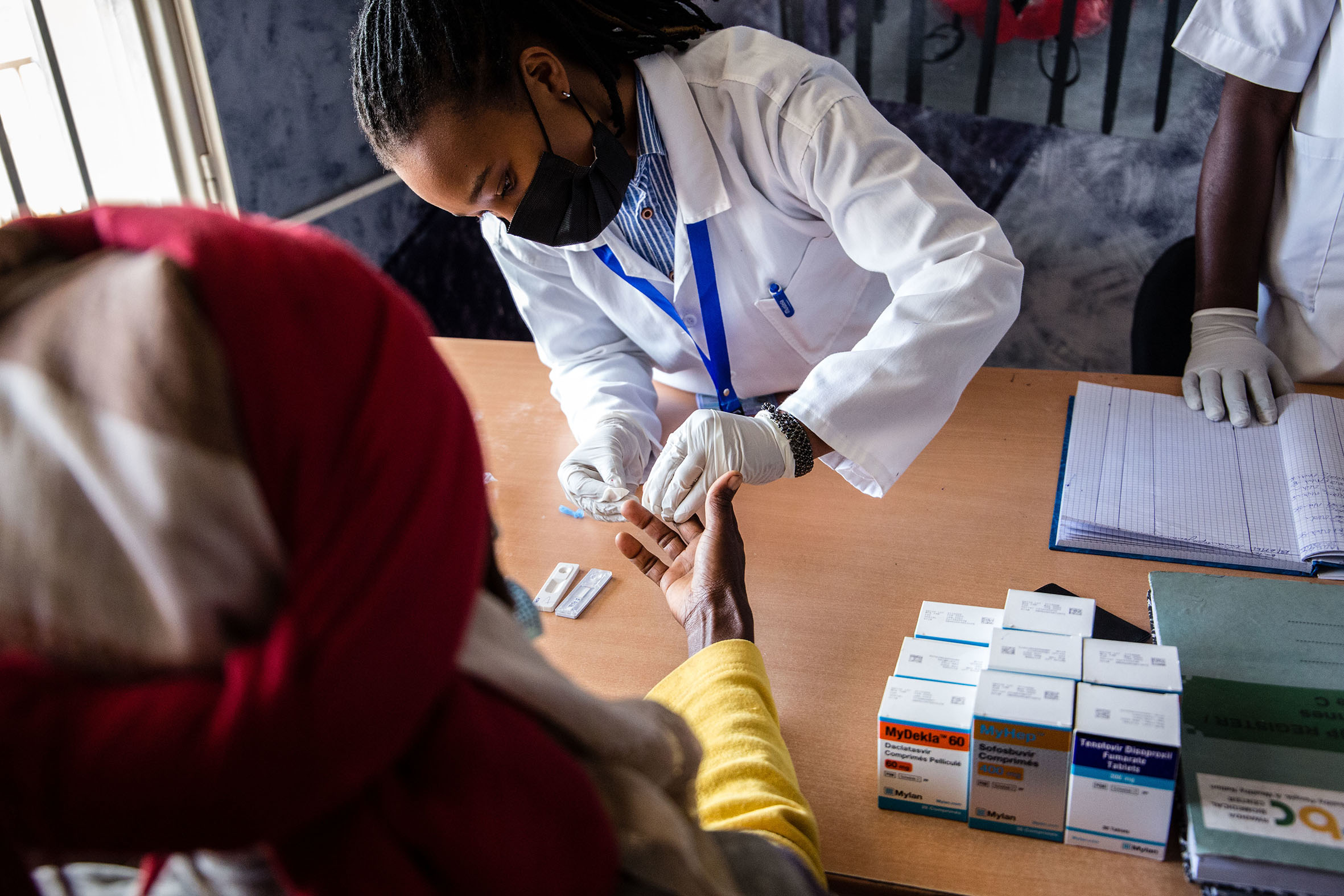Events
FEATURED: Why non-communicable diseases are on the rise in Rwanda

Health workers test for hepatitis at Remera Health Centre during the celebration of the World Hepatitis Day on July 28, 2021. Photos: Dan Nsengiyumva.

